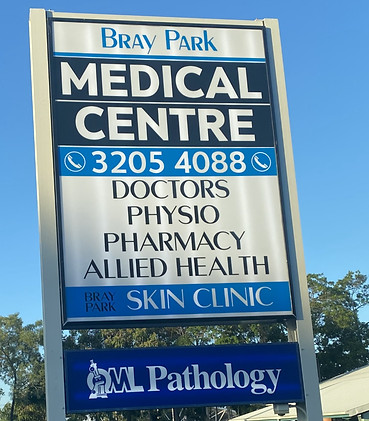
Two in three Australians will develop skin cancer before the age of 70. The good news is that 95 per cent of skin cancers can be successfully treated if detected early.
At Bray Park Medical Practice we recognise the importance of your skin health and offer a skin check service.

Our Services
We have several doctors who have a wealth of knowledge and skin cancer experience in the excision of risky moles, skin cancers and other skin conditions such as skin tags, warts and cysts. Their expertise and commitment in the promotion of skin cancer awareness, and provision of services such as skin cancer checks, has allowed for many early diagnosis and treatments to occur of this preventable disease.
Book now for a skin cancer check, the skin doctor will assess your risks and let you know how often you should receive skin checks.
Our Process
Our Skin doctors conduct systematic skin cancer checks that may entail a full head-to-toe examination using the latest digital image technology.
They will then provide any diagnosis and appropriate treatments and let you know when you need a follow up appointment.
Ring the clinic today for availability.
Skin Cancer Clinic Days
Melanoma accounts for 10% of all cancers.




Skin Cancer Facts
What is skin cancer?
Skin cancer occurs when skin cells are damaged, for example, by overexposure to ultraviolet (UV) radiation from the sun.
There are three main types of skin cancer:
-
melanoma - the most dangerous form of skin cancer
Both basal cell carcinoma and squamous cell carcinoma are known as non-melanoma skin cancer.
Approximately, two in three Australians will be diagnosed with skin cancer by the time they are 70. Non-melanoma skin cancer is more common in men, with almost double the incidence compared to women.
Excluding non-melanoma skin cancer,* melanoma is the third most common cancer in Australians. In 2015, 13,694 Australians were diagnosed with melanoma.
Every year, in Australia:
-
skin cancers account for around 80% of all newly diagnosed cancers
-
the majority of skin cancers are caused by exposure to the sun
-
GPs have over 1 million patient consultations per year for skin cancer
-
the incidence of skin cancer is one of the highest in the world, two to three times the rates in Canada, the US and the UK.
In 2016, 1960 people died from skin cancer in Australia, 1281 from melanoma and 679 from non-melanoma skin cancers.
Diagnosis for skin cancer
It is important to check your skin regularly and check with your doctor if you notice any changes.
In the majority of cases, your GP will examine you, paying attention to any spots that may look suspicious. Your GP may perform a biopsy (remove a small sample of tissue for examination under a microscope). In some cases your GP may refer you to a specialist, such as a dermatologist, if necessary.
Treatment for skin cancer
Skin cancers are almost always removed. In more advanced skin cancers, some of the surrounding tissue may also be removed to make sure that all of the cancerous cells have been taken out.
The most common treatment for skin cancer is surgery to remove the cancer (usually under a local anaesthetic). Common skin cancers can be treated with ointments or radiotherapy. Skin cancer can also be removed with cryotherapy (using liquid nitrogen to rapidly freeze the cancer off), curettage (scraping) or cautery (burning).
For more detailed information about skin cancer please phone Cancer Council 13 11 20 or talk to your GP.


